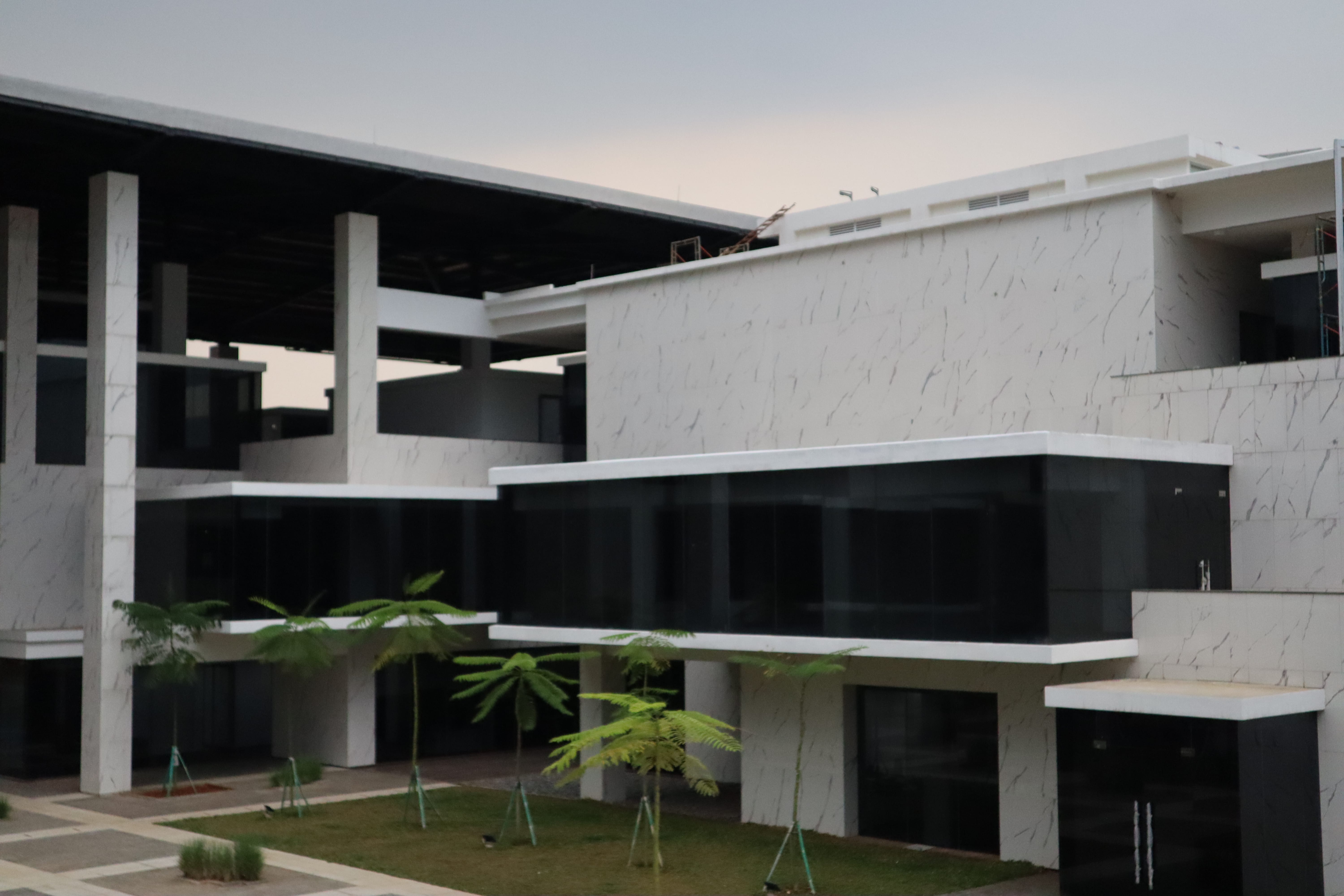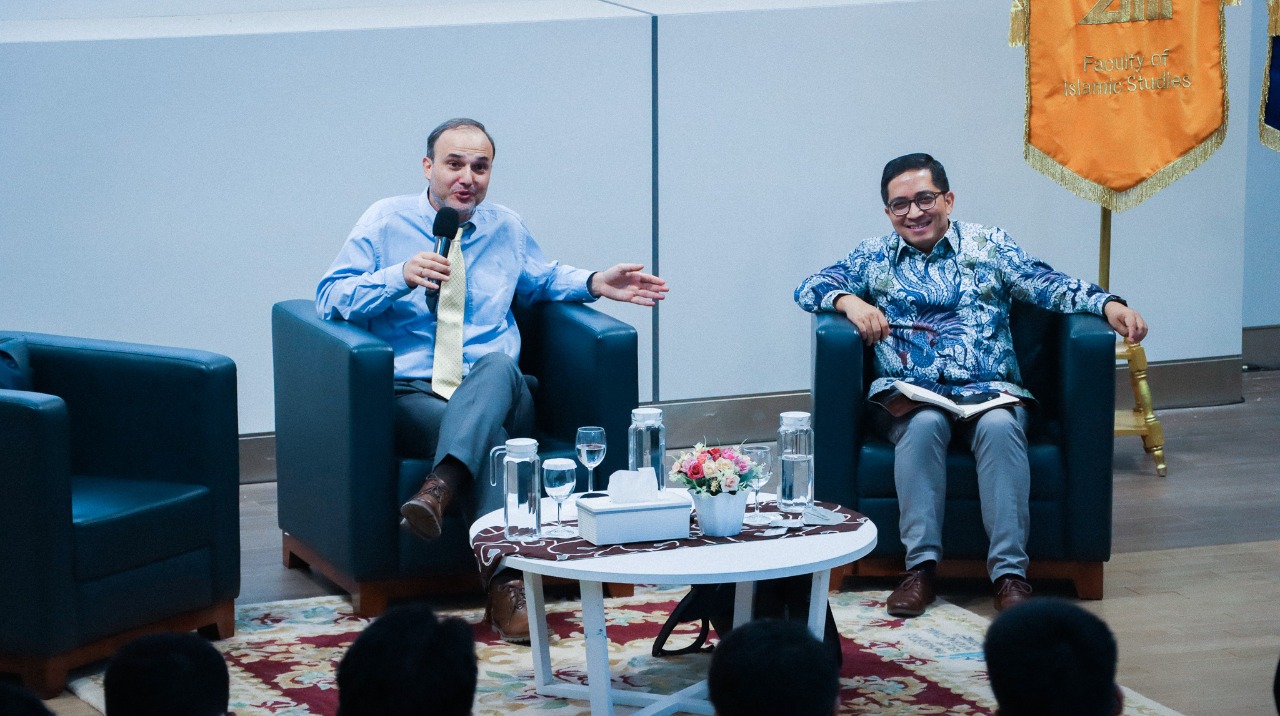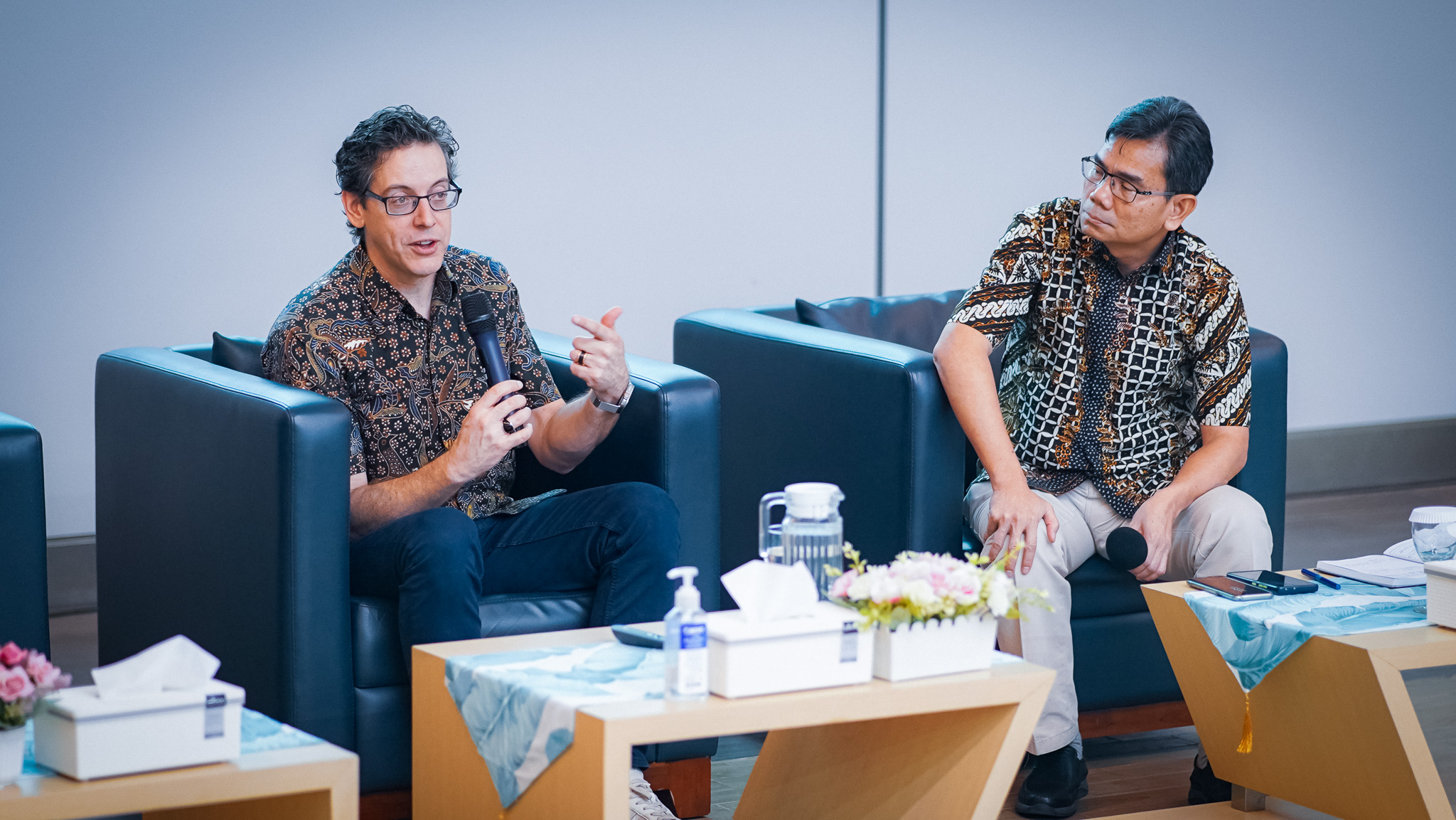Prof. Ahmet T. Kuru Teaches Seminar Class on Religion, Democracy and Development at UIII This Semester
October 18, 2021UIII.AC.ID, DEPOK - First-year graduate students in the MA program in Political Science at International Islamic University of Indonesia (UIII) attended the first lecture by Prof. Ahmet T. Kuru on Monday, September 27, 2021 as the new campus kicked off this year's all-new academic program.
His class on “Religion, Democracy and Development” was held online via Zoom. Twenty five graduate students are enrolled in his seminar class this semester, aimed at contributing to their capacity of critical thinking on social-phenomena about religion, democracy and development. Ahmet T. Kuru (PhD, University of Washington) is Bruce E. Porteous Professor of Political Science at San Diego State University, USA. He was a postdoctoral scholar at Columbia University. He is the award-winning author of “Secularism and State Policy on Religion: The United States, France, and Turkey” (Cambridge University Press, 2009), and editor (with Alfred Stepan) “Democracy, Islam and Secularism in Turkey” (Columbia University Press, 2012).
His works have been translated into Arabic, Bosnian, Persian, French, Chinese, Turkish, and now into Bahasa Indonesia. His recent book “Islam, Authoritarianism, and Underdevelopment: A Global and Historical Comparison” (Cambridge University Press, 2019) is one of two winners of the International History and Politics Award from the American Political Science Association. Recently, Prof. Kuru has received a warm welcome from Indonesian readers after his latest book was translated into Bahasa Indonesia. In this book, he criticizes the explanations that point to Islam as the cause of the decline, because in the philosophical and socioeconomic fields, the Muslim world was more advanced than Western Europe between the 9th and 12th centuries AD. Western colonialism was not the cause either, the Muslim world was already suffering from political and socioeconomic problems when colonization began.
Instead, Kuru points out that the Muslim world already had influential thinkers and traders early in its history, when religious orthodoxy and military rule were still rife in Europe. However, in the 11th century, alliances between orthodox Islamic clerics and military states began to emerge. The alliance gradually stifled intellectual and economic creativity by marginalizing the intellectual and bourgeois classes in the Muslim world. Kuru’s important contribution connects historical explanations with contemporary politics by showing that until now, the ulama-state alliance continues to complicate creativity and competition in Muslim countries. [dd1]
- Dr. Nia Deliana Navigates India-Indonesia Maritime Softpower at Odisha Research Workshop
- UIII Extends Application Deadline for 2025 International Admissions
- UIII Embraces a Green Ramadan: A Month of Worship and Sustainability
- UIII Evaluates Quality Assurance System, Plans For New Study Programs
- Lost at Sea: UIII’s Dr. Nia Deliana Reveals the Silent Crisis of Sea Refugees
- The Qur’an in a Changing World: Prof. Sahiron Syamsuddin’s Visionary Lecture at UIII
- A Shared Mission of UIII and ICRC in Advocating International Humanitarian Law
- Hartford International University for Religion and Peace Signs MOU with UIII for Future Academic Partnership
- Professor Dian Masyita Honored as a Changemaker in Empowering Communities
- Bridging the Archipelago and the Nile



